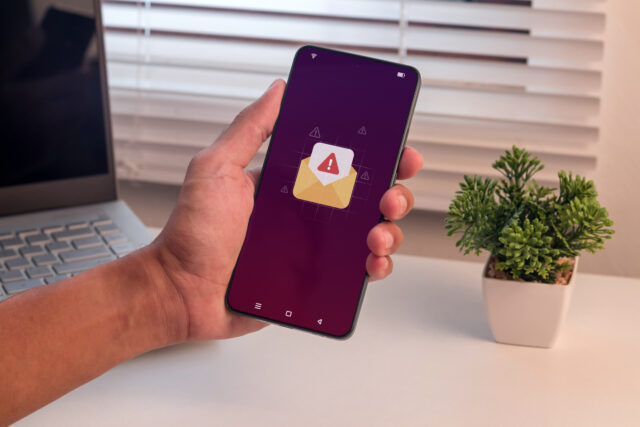New report says Android users are better at avoiding scams than iPhone owners

A new analysis of smartphone security habits reveals that Android users are safer online than their iPhone counterparts. Based on data from over 1,300 people in the US, UK, Austria, Germany, and Switzerland, the report from Malwarebytes highlights key differences in how Android and iPhone users behave, and how those choices impact their chances of falling for online scams.
According to the research, Android users more often use security tools, make smarter purchasing decisions, and protect their accounts with stronger passwords. They are also less likely to fall for scams.
SEE ALSO: Samsung Galaxy Z Fold7 and Flip7 launch with AI features and thinner, lighter designs
The original research from Malwarebytes was published in June and showed how mobile scams have become routine for many people and how some have stopped even trying to stay safe.
This new analysis breaks the data down by platform, comparing iPhone and Android users while adjusting for age differences.
One of the most surprising findings is that Apple users are more likely to engage in risky behavior when shopping online. The data shows that 47 percent of iPhone users purchased an item from an unknown website because it had the best price, compared to 40 percent of Android users.
Similarly, 41 percent of iPhone users sent a message to a company or seller account on social media to get a discount code. Only 33 percent of Android users did the same.
The differences continue in how users protect themselves. Just 21 percent of iPhone users reported using security software on their phone.
For Android users, that number was 29 percent.
When it comes to choosing unique passwords for their accounts, 35 percent of iPhone users said they do so, compared to 41 percent of Android users.
Android users are more cautious
While Android users are not perfect, they appear to take more precautions and rely less on built-in trust in their devices. That trust gap may be part of the problem of course.
According to the original research, 55 percent of iPhone users said they trust their phone’s security measures to keep them safe, compared to 50 percent of Android users.
That mindset could also help explain why fewer Apple users take extra steps to protect themselves.
As Mark Beare, general manager of the consumer business at Malwarebytes, explained, security today requires more than relying on the device. “Devices and operating systems are just gateways to apps and websites, and it’s often those online spaces that present cyber risks. When those websites or apps serve malicious or deceptive content, it’s up to the user to decide what’s real, what’s a scam, and where they should or shouldn’t click.”
This is especially true in the world of online shopping. Although long-standing advice warns against clicking unknown links or sharing personal information, many businesses now use those same tactics to promote deals.
Social media accounts often invite people to send a message to receive a discount code. Websites ask for phone numbers in exchange for coupons. Restaurants and retailers routinely use QR codes for payments or order tracking.
These practices, once thought to be suspicious, are now standard. But as Malwarebytes points out, their wide adoption does not make them safe.
According to the research, 63 percent of iPhone users signed up their phone number for promotional deals, compared to 55 percent of Android users. Forty-one percent of iPhone users also used DMs for discounts, compared to 33 percent of Android users.
And while QR code usage is widespread, the data still suggests iPhone users are less cautious overall. That has consequences.
The analysis found that 53 percent of iPhone users have fallen victim to a scam. For Android users, the rate is 48 percent.
Beyond shopping, the gap continues in how users protect their data. Just 19 percent of iPhone users said they use ad blockers, compared to 27 percent of Android users.
Even more concerning is password hygiene. Only 35 percent of iPhone users use unique, strong passwords for online accounts. For Android users, that number was again higher at 41 percent.
Password managers are available for free on all platforms, and Apple has offered its own built-in password app since iOS 18. For users who don’t trust digital tools, even writing passwords in a notebook is a safer alternative than reusing the same login everywhere.
In the end, no device or operating system guarantees safety online. As Malwarebytes notes, the real threat often comes from the apps, sites, and people users interact with, not the phones themselves.
“Every person, no matter their device, should create unique passwords for individual accounts, use security products, and rely on friends and family when something doesn’t feel right online,” the company said.
What do you think about iPhone and Android users’ online habits? Let us know in the comments.
Image Credit: fadfebrian / Dreamstime.com
